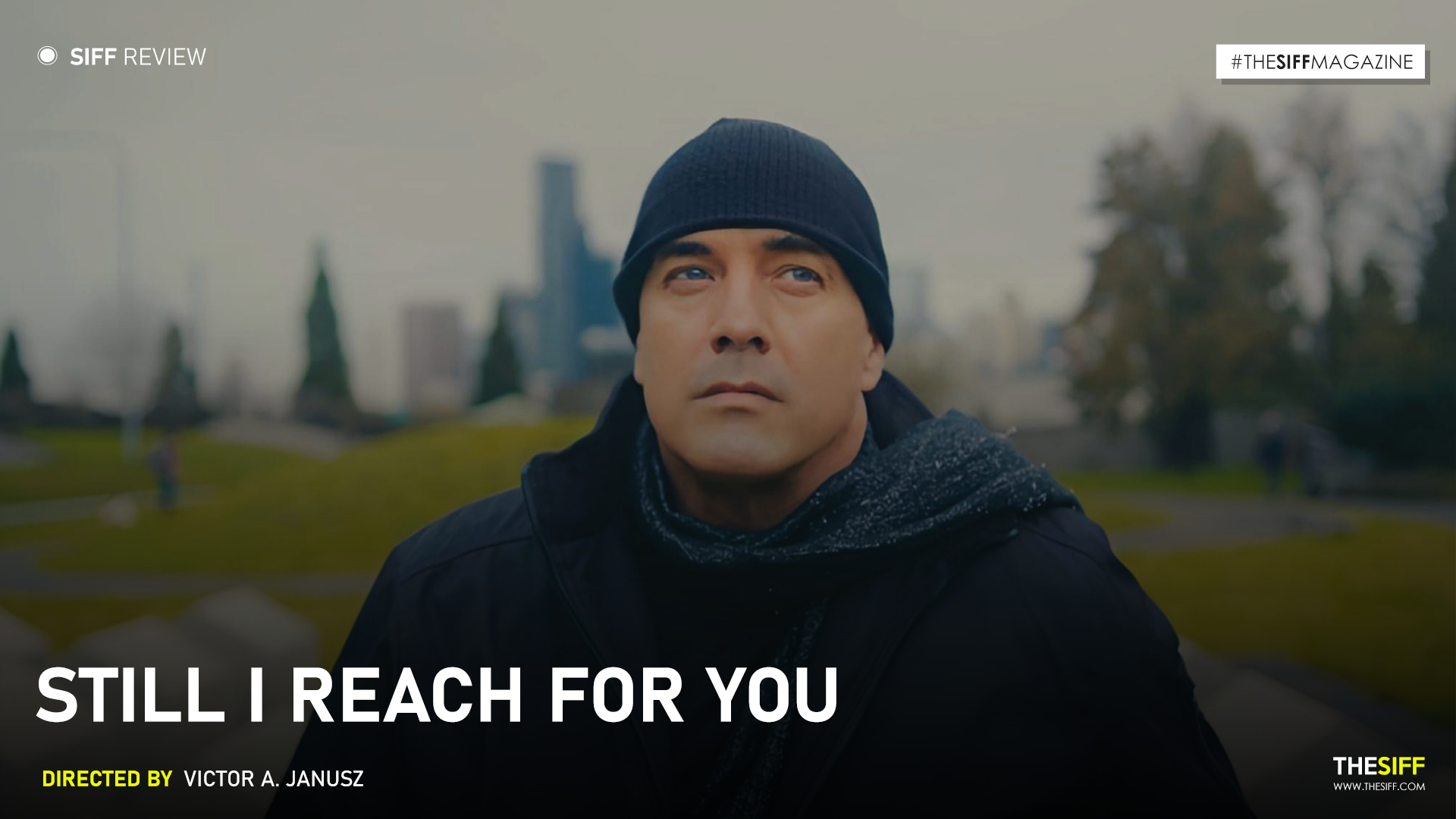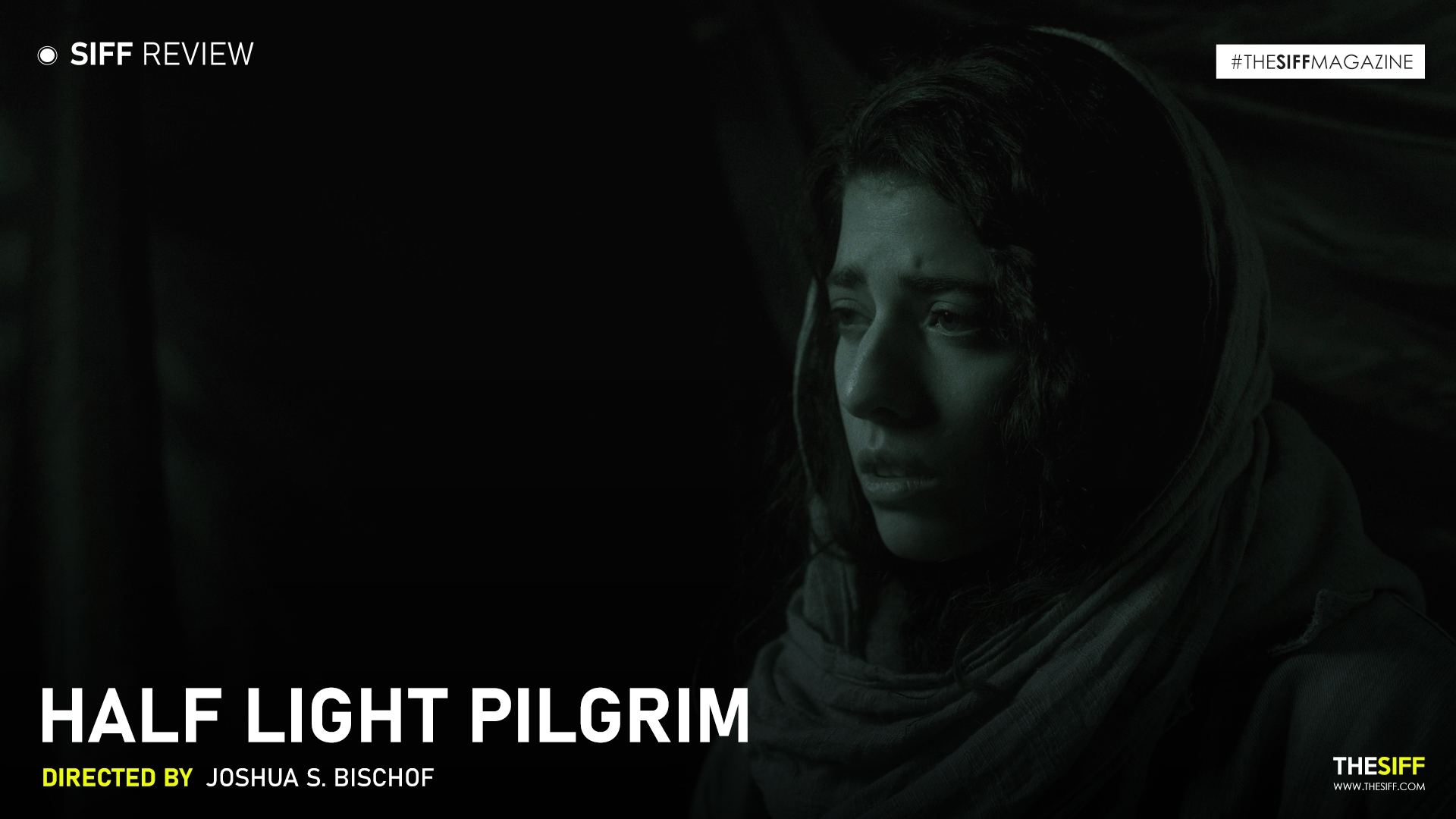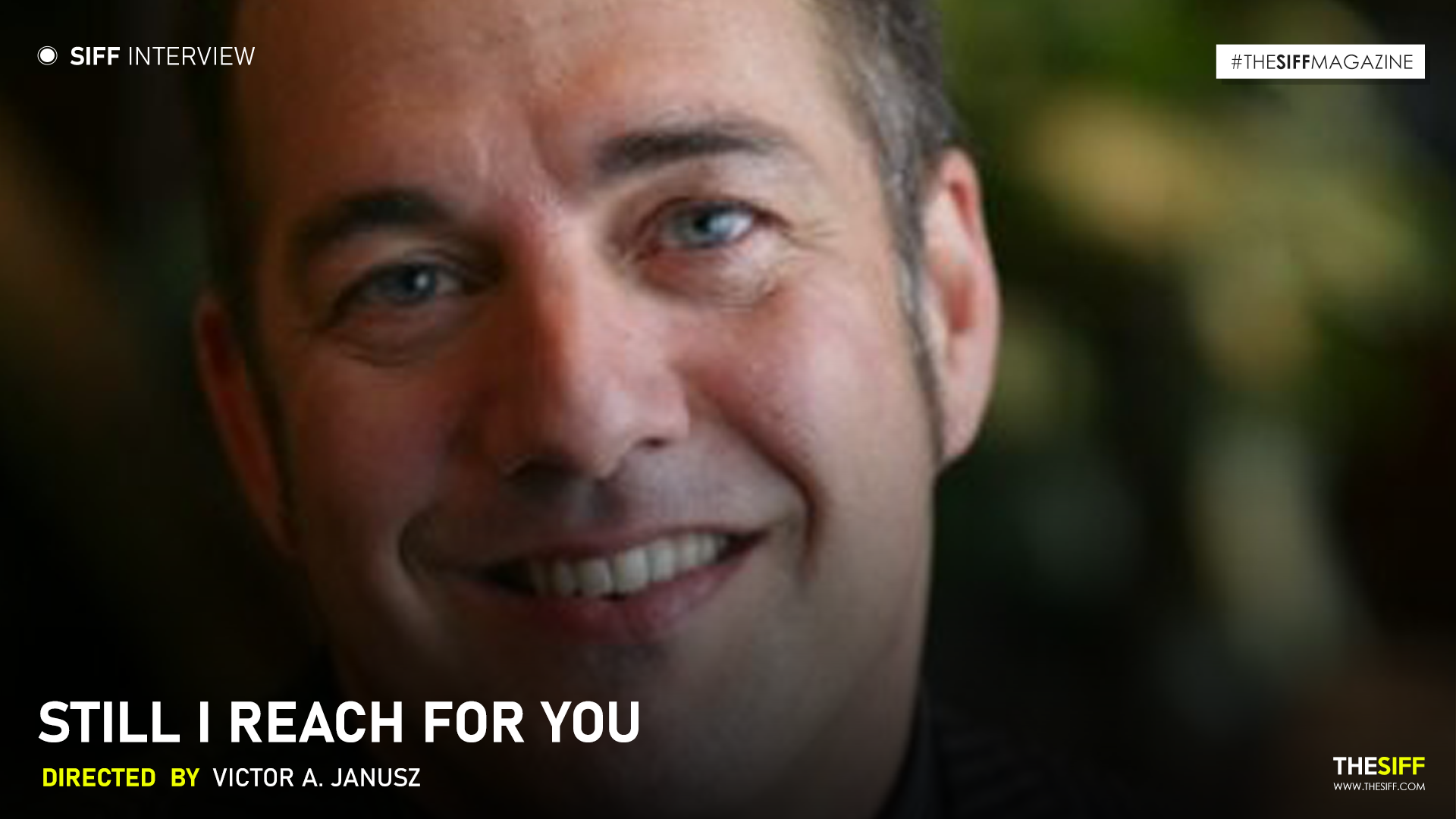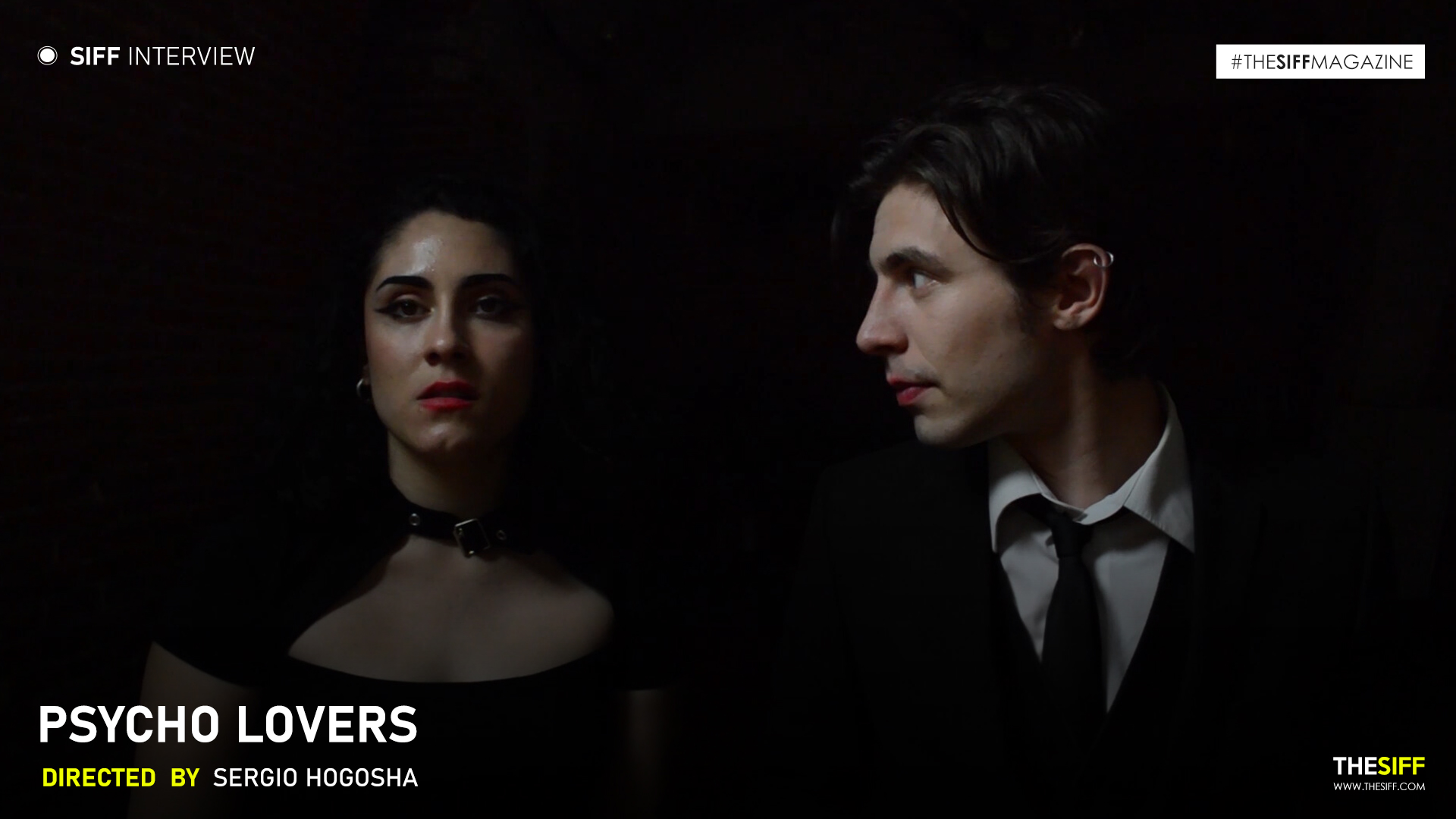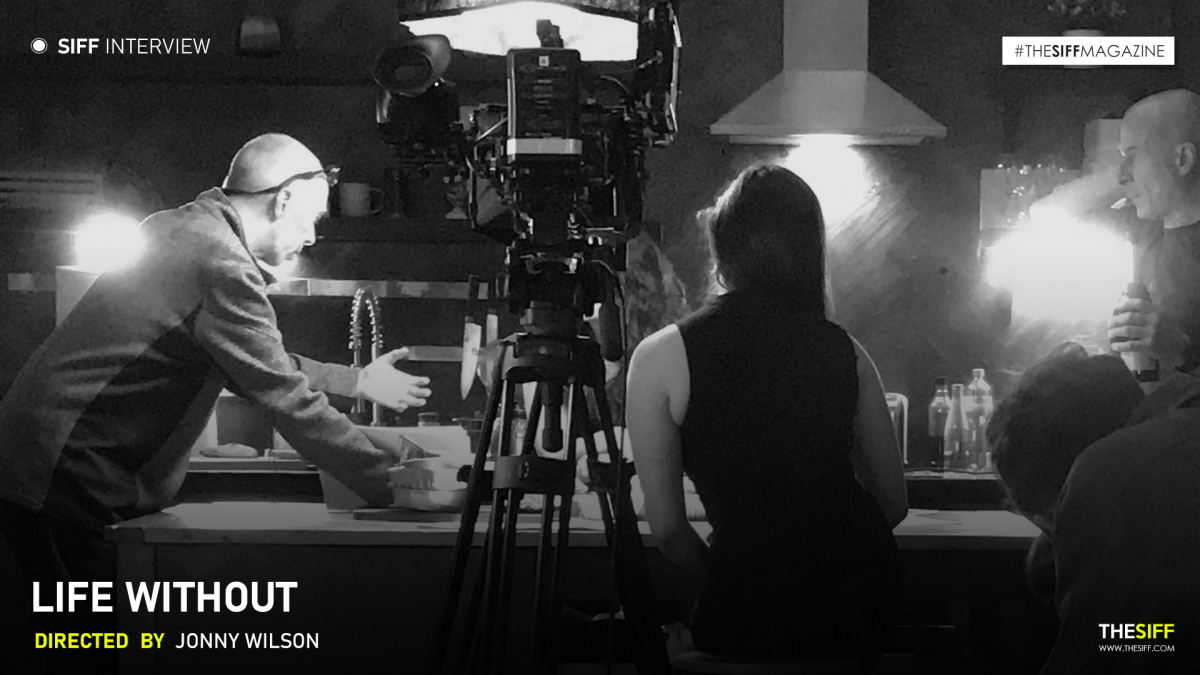
Movie name: Life Without
Director: Jonny Wilson
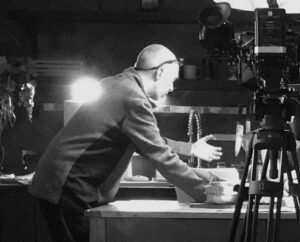
Hello, Jonny! Welcome to the SIFF!
1. The film explores a woman and her vengeance. As a male director, what’s your take on this? Do you think this revenge drama is only specifically women-oriented?
I fully understand why that would be the first question you would ask. However, the starting point for this film is somewhat different. The essence of Life Without is not quite exploring the quest for vengeance. It’s exploring what you and I consider justifiable as a crime when it involves killing someone. As an example of what this means, here’s a famous moral reasoning experiment that asks that question. A psychologist in the 1950s once asked is it morally
acceptable to pull a lever that will cause a train to kill one person, if not doing so instead killed five people ? For decades, a greater number answered, yes such an action is acceptable. But a version of that where the pushing of a single person onto a track saves five people from an oncoming train, the greater number responded that it would be morally unacceptable. It’s a moral reasoning question, and results since the 1950s show we can literally be of two minds and make different ethical decisions. So, Life Without is asking that question, but in a visual manner. And if moral reasoning is used when creating characters, as I did, you’ll probably reach the conclusion that revenge is not gender specific.
2. The film revolves mainly around the rape and murder of the protagonist’s mother. What do you think is the protagonist justified to seek revenge for her dead mother?
This question is really bound up in your first question. In Life Without, the two sisters Jessica and Kelly have already taken revenge on the perpetrator of the crime on their mother. The film’s question is really to the audience and asks whether their much more premediated second plan to kill is morally justifiable. And if it’s not, what moral justifications would have to be satisfied to make it so. This reverts back to the psychological possibilities of the characters. The audience hopefully will put themselves in the minds and emotions of the sisters and ask what would I do ? What would you do ?
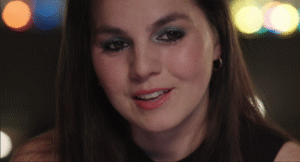
3. Rape is a brutal act and murder inhuman. So why do you think the protagonist is disturbed by the horror movie? What does it imply about the psyche of the protagonist?
For the protagonist Jessica, the real world, the horror film and the world that exists in, haunts her creating a paranoia which eventually consumes her. Life Without is experimental in its execution and handling of rape. This concept was not at all to make the reality of rape a construct, but instead a psychoanalytic critique of the relationship between these two women. So, in this film we see these two women are two sides of the same woman. In a way they have lost their origins and suddenly they want to be the small girls they used to be.
4. What is your take on female bonding considering the protagonist reunites with her estranged sister?
In terms of creating characters, for me the starting point is never to think of them as men, women, or their ethnicity or sexual identity or orientation. If you fall into that trap, you reduce the character immediately to just that and only that. Instead, the focus is exploring the moral needs and problems of the character. Female bonding or male bonding is a state of how you mould your characters and how you have them reveal their emotions and feelings. I’m sure I will
write and create other screenplays with imaginative female characters, and that bond will be uniquely different to them because of the starting point when it comes to writing and the creation of my characters.

5. Why is it that one sister is thirsty for revenge, while the other is desperate for success as an actress? Both of them lost their mother, but one seems to be more concerned than the other. As a director what do you have to say upon this?
The abuse of women could be cited as a central theme. However, I’d like to believe the illusionary nature of the sisters’ worlds essentially creates a mystery that can be pieced together, despite its fascinating intricate obscurity, in a way that is purely intuitive to the viewer. The characters may be best understood if you look at the offscreen story that is being told. The mother’s killer has already been killed by the oldest sister Jessica, many years earlier. The
younger sister Kelly is still very much a woman in trouble because of her different memories which are in isolation to her older sisters. This creates a difference in desires. The older sister wants to remain hidden from her crime. The younger sister is still seeking revenge that seems to have evaded her.
6. Through this movie what message do you want to give to the masses?
If Life Without can be summed up, perhaps it could be best described as a reflection of you, the person viewing it. The younger lost sister Kelly’s experience produces a dark world. The older sister Jessica may become a “real” film star. Or Jessica simply gives in to becoming a vessel in which Kelly passes on her trauma, as she was forced to watch her experiences playout again and again over time.
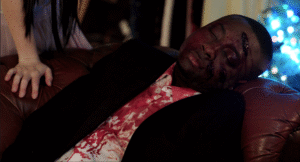
7. This movie has a deep emotional connection with the women’s brigade. How do you think the male audiences will connect with this film?
Hopefully, males in the audience will get an insight into the toxic masculinity that exists in the stylized and illusionary world of the film. A place where misogyny and rape culture exists, as it has done for centuries in the real world. But for me, I’m more interested in the relationships that take place between men and women, and probe why do terrible things recur and recur again and again throughout time. Why do we allow that to happen. But it must be remembered this is not a story about toxic masculinity but trauma. Because once life is disturbed by shock or trauma, the real part of our emotions and personalities start to surface. Like the characters in the film, it’s much easier to bury our feelings than face them head on. But the more we suppress our emotions, the more problems start to accumulate. After trauma hits, we can start to face ourselves and be more honest in our dealings with others, and that is when the healing starts to take place.
8. Revenge is best served when cold! Revenge after 10 years of the rape and murder. As a director what’s your point of view regarding this? Do you think a woman is more vengeful than a man and do you think once she makes up her mind, she will knock down her enemy?
Revenge is supposed to make us feel better, whatever our gender. But it doesn’t, does it ? And in our hearts, we all know that. If revenge doesn’t make us feel any better, why do we seek it? Evolutionary hypothesis suggests there are two reasons for punishing others in this context. One is what they call ‘altruistic punishment’ is where you are willing to sacrifice your own well-being in order to punish someone who misbehaved. The other is where in a criminal or lawless society or where social tribal rule holds more sway, you are more prone to seek revenge because there
is no other way to obtain justice. Revenge is a very human response to feeling slighted, but humans are atrocious at predicating its effects. If you consider the characters of Jessica and Kelly in Life Without, they have already
taken revenge on their mother’s murder without capture or punishment. And Kelly now newly inhabits a criminal world. It’s a cocktail ripe for revenge.
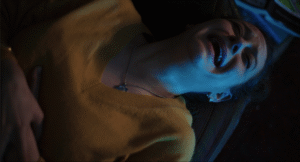
9. The protagonist feels that her mother was severely wronged and didn’t get justice. So, she tries to give her mother the deserved justice. What message does it convey about human emotions and character? Is it just female bonding or more of a mother-daughter bond?
Firstly, Leila Ayad who played Jessica and Georgina Jane who played Kelly, both deserve applause for keeping the characters complex and convincing. A common theme in my characters is that I am using cognitive psychology to ground them. And it’s really on how you build the character based on known cognitive bias. The human condition states that we all have the psychological need to experience fear as an emotion because it comes from the need to learn to avoid danger. There is no boring middle ground here. Hence, you can create characters like Brody in the film Jaws, who is afraid of the water but must battle a killer shark who’s causing chaos for his small town. So, if there’s a message about human emotions it is when we experience trauma what happens is our minds react to that experience. And our brains are a mix of new and old processes that evolved at different times. These processes sometimes disagree on the meaning, importance and value of things and often we can be clueless on how we got our opinions or made our decisions. Often, we are drawn to things and repelled by the same thing, and we don’t know why. Which is why our emotions are determined by subconscious forces. That is what for me is wonderful about the human condition and its unpredictability.
10. Lastly, do you think the movie will have an impact on the rapists and murders? Will they understand the pain of the victim and what their family has to go through? Will it actually make a significant difference in the world?
No, Life Without clearly will not have an impact on predators that exist in our society today, no more than a film on the concept of ‘war is bad’ has any chance of preventing future global conflicts. The historical back catalogue of films that have that concept at their heart, told in many different ways are numerous but sadly, the world still has conflicts. The essence of what Life Without is about is why we as humans are compelled to do things, even if they are bad for
us.
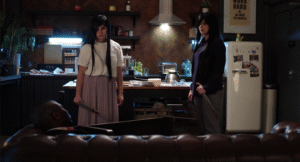
11. Finally on a lighter note! Let us know how much you enjoyed working with us!
The process has been liberating. It’s extremely important to be able to announce your voice as a director. You learn and advance on how to be a filmmaker by debating and by making films that ask questions. And then being asked questions by others about the film. You have done exactly that for me.


